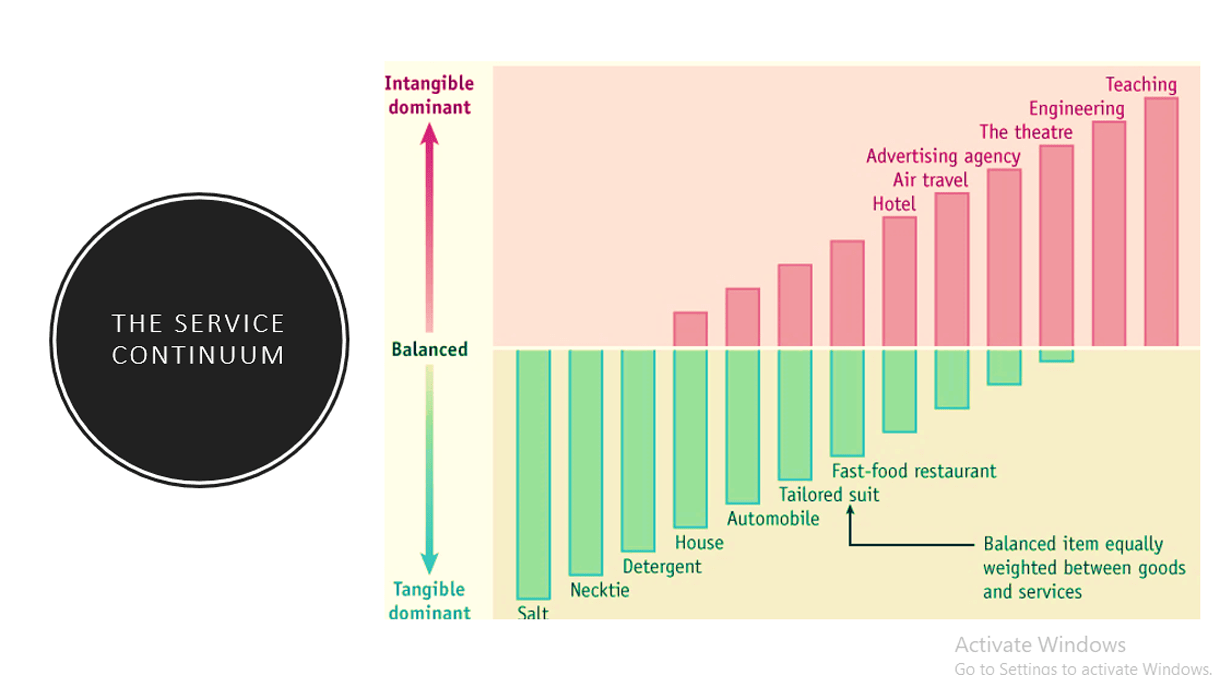This mini case is included to help students explore the key concepts from services marketing.
What distinctive aspects of services, and what other services marketing concepts explained are reflected in this case, and what are likely to be important considerations in marketing and managing this service successfully.
- On the service continuum (Figure 1.5) students should identify that Office Plant is a balanced service. They provide both goods (live and artificial plants) and services (plant consultations and maintenance).
- Students should try to identify each of the differentiating aspects of services from Table 1.1.
- Service products are intangible performances – customers do not own the service and apart from plants that have not died, and dead foliage that has been pruned and cleared, there is little tangible evidence of the service being performed;
- Greater involvement of customers – Office Plant can advise their customers on plant location and care, but a great deal of the success of the firm rests on the Heterogeneity – the service provided by Office Plant would vary depending on the client, the types and sizes of plants used, the level of service requested;
- Relative Importance of Time – This applies both to the maintenance of plants which must be cared for in a timely manner by a human resources intensive firm, but also the time savings for Office Plant’s clients, which are mostly time-poor professional organizations.
- Important considerations in marketing and managing this service can be found by analyzing the service management trinity (Figure 1.14).
- As production and consumption of this service is not separated, Office Plant’s workers become ‘factories in the field’. Strategies to market manufactured goods usually address the traditional four elements of the marketing mix—product, price, place, and promotion.
- But the distinctive characteristics of services, including the lack of stocks and customer involvement in production, require attention to additional strategic elements. The 7Ps model (Figure 1.12) highlights seven strategic decision variables for managers of service organizations.

